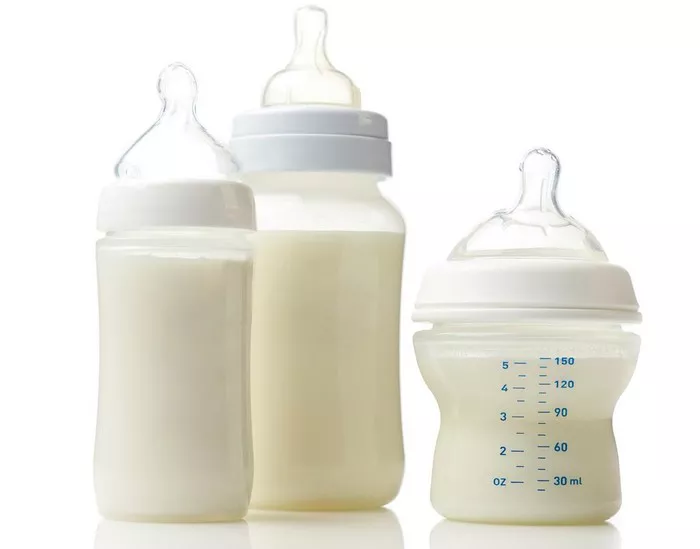Breastfeeding is a natural and essential part of nurturing an infant’s growth and development. However, as with many aspects of parenting, there are often questions and concerns about the best practices surrounding breastfeeding. One such question that frequently arises is whether it’s acceptable to mix breast milk with water. In this article, we’ll delve into this topic, debunking myths and exploring the facts and best practices to ensure the health and well-being of both mother and child.
Understanding Breast Milk Composition
Breast milk is often referred to as “liquid gold” due to its unparalleled nutritional value for infants. It contains a unique blend of proteins, fats, carbohydrates, vitamins, and minerals, perfectly tailored to meet the specific needs of a growing baby. Additionally, breast milk contains antibodies and other immune-boosting factors that help protect infants from infections and diseases.
The composition of breast milk changes throughout the breastfeeding journey, adapting to the evolving nutritional requirements of the infant. Colostrum, the first milk produced by the mother in the days following childbirth, is particularly rich in antibodies and provides essential protection for the newborn.
As breastfeeding continues, the composition of breast milk transitions to meet the increasing energy and nutrient demands of the growing baby. This dynamic nature of breast milk ensures that infants receive optimal nutrition at each stage of development.
The Importance of Exclusive Breastfeeding
Exclusive breastfeeding, defined as feeding infants only breast milk (no other liquids or solids) for the first six months of life, is recommended by leading health organizations, including the World Health Organization (WHO) and the American Academy of Pediatrics (AAP). During this period, breast milk provides infants with all the nutrients they need for healthy growth and development.
Introducing water or other liquids before six months of age is generally unnecessary and may even be harmful. Breast milk is approximately 88% water, providing infants with sufficient hydration along with essential nutrients. Introducing additional water can fill up a baby’s small stomach, leading to decreased intake of breast milk, which is crucial for their growth and development.
Furthermore, giving water to newborns can disrupt the delicate balance of electrolytes in their bodies, potentially causing electrolyte imbalances or even water intoxication, a rare but serious condition that occurs when too much water is consumed, leading to a dilution of essential electrolytes in the bloodstream.
Addressing Common Concerns
Despite the clear recommendations for exclusive breastfeeding for the first six months, some parents may still have concerns or questions about mixing breast milk with water. Let’s address some of the common concerns:
1. Dehydration: One concern parents may have is whether their baby is getting enough fluids, especially in hot weather. It’s essential to remember that breastfed babies are very efficient at regulating their fluid intake. As long as the baby is allowed to nurse whenever they show hunger cues, they will receive adequate hydration from breast milk alone.
2. Digestive Issues: Another concern is whether breast milk alone is sufficient to relieve constipation or digestive discomfort in infants. Breast milk contains natural laxative properties and is highly digestible, making it unlikely that a breastfed baby will experience constipation. Introducing water is unnecessary and may interfere with the baby’s intake of breast milk, which provides essential nutrients for healthy digestion.
3. Nutritional Needs: Parents may worry that breast milk alone may not meet all of their baby’s nutritional needs, particularly as they grow older. However, breast milk is perfectly designed to provide all the necessary nutrients for infants up to six months of age. As the baby’s nutritional needs change, breast milk composition adjusts accordingly, ensuring that they receive optimal nutrition at each stage of development.
Best Practices for Feeding Breastfed Babies
To ensure the health and well-being of breastfed babies, it’s essential to follow these best practices:
1. Exclusive Breastfeeding: Aim to exclusively breastfeed your baby for the first six months of life. This means feeding them only breast milk and avoiding the introduction of water, formula, or other liquids or solids during this time.
2. Responsive Feeding: Pay attention to your baby’s hunger cues and feed them on demand. Breastfed babies typically nurse frequently, with newborns often nursing every 2-3 hours. Trust your baby’s instincts and allow them to nurse whenever they show signs of hunger.
3. Stay Hydrated: As a breastfeeding mother, it’s essential to stay well-hydrated to ensure an adequate milk supply. Drink plenty of water throughout the day, especially while breastfeeding, to maintain hydration levels.
4. Seek Support: If you have concerns or questions about breastfeeding, don’t hesitate to seek support from a lactation consultant, healthcare provider, or breastfeeding support group. These resources can provide guidance and assistance to help you navigate your breastfeeding journey successfully.
Conclusion
Breastfeeding is a beautiful and natural way to nourish and bond with your baby. By understanding the unique composition of breast milk and following best practices for feeding breastfed babies, you can ensure that your baby receives the optimal nutrition and hydration they need for healthy growth and development. Remember, breast milk alone is sufficient to meet your baby’s needs for the first six months of life, so there’s no need to mix it with water or other liquids. Trust in your body’s ability to provide for your baby, and enjoy the precious moments of breastfeeding together.



